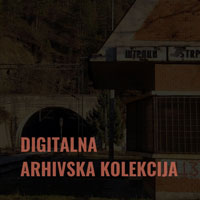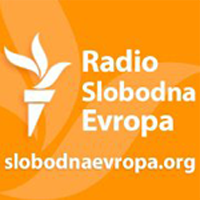Call for Proposals: Media and Revisionism

 In Serbia’s public discourse, the dominant interpretations on the Yugoslav wars not only ignore or devalue judicially-established facts about crimes committed during the wars, but deny and falsify the facts into distorted narratives. Media work in a context of increasing monopolisation by revisionist memory politics from above. At the same time, media themselves are becoming a crucial instrument in revisionist memory politics.
In Serbia’s public discourse, the dominant interpretations on the Yugoslav wars not only ignore or devalue judicially-established facts about crimes committed during the wars, but deny and falsify the facts into distorted narratives. Media work in a context of increasing monopolisation by revisionist memory politics from above. At the same time, media themselves are becoming a crucial instrument in revisionist memory politics.
Humanitarian Law Center (HLC) is hiring a consultant who will write a programmatic paper on the topic “Media and Revisionism”. The paper should identify and analyse revisionist trends in media reports on the wars of the 1990s (on the occasions of anniversaries, important decisions, etc.), and provide tools and resources for an alternative, critical role of media in dealing with the past. Therefore, the HLC is inviting scholars and researchers to submit their paper proposals on the topic “Media and Revisionism”.
All submissions are required to include the applicant’s CV (up to 3 pages) and a paper proposal (up to 300 words). Submissions should be made electronically to office@hlc-rdc.org with the subject line: “CfP Media and Revisionism”. The deadline is April 5, 2022. Only successful applicants will be contacted by the HLC.






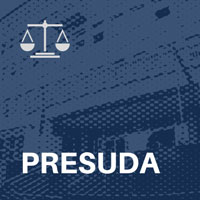
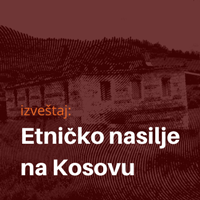
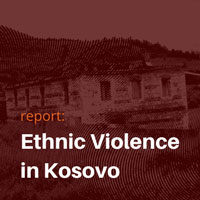 Following June 1999 the Serbs in Kosovo have been having a hard time. After the withdrawal of the Serbian army and the police, they became the targets for the KLA and criminal groups. Numerous murders, abductions and property destruction happened in the presence of the international forces. The absence of KFOR’s reaction persuaded even those Albanians who were against the violence that the international community was supporting the idea of the extreme political groups that Kosovo should be free of the Serbs. On 17 March, with the exception of Mitrovicë/Mitrovica, UNMIK and KFOR, once again and primarily through their omission to act, encouraged the Albanian extremists.
Following June 1999 the Serbs in Kosovo have been having a hard time. After the withdrawal of the Serbian army and the police, they became the targets for the KLA and criminal groups. Numerous murders, abductions and property destruction happened in the presence of the international forces. The absence of KFOR’s reaction persuaded even those Albanians who were against the violence that the international community was supporting the idea of the extreme political groups that Kosovo should be free of the Serbs. On 17 March, with the exception of Mitrovicë/Mitrovica, UNMIK and KFOR, once again and primarily through their omission to act, encouraged the Albanian extremists.

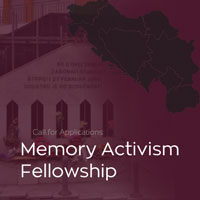
 The Humanitarian Law Center accepts applications for the first round of Memory Activism Fellowships, including two fellowships of up to 6 months, starting in May and October 2022. We welcome fellowship applications from researchers, journalists, practitioners and artists who work on the 1990s wars in former Yugoslavia from different perspectives. The fellowship is non-residential and does not require a presence in Belgrade. During the fellowship, the fellows are expected to generate outputs that will be published and promoted by the HLC. The outputs can be in the form of analysis, a report, a series of blogs or organisation of events.
The Humanitarian Law Center accepts applications for the first round of Memory Activism Fellowships, including two fellowships of up to 6 months, starting in May and October 2022. We welcome fellowship applications from researchers, journalists, practitioners and artists who work on the 1990s wars in former Yugoslavia from different perspectives. The fellowship is non-residential and does not require a presence in Belgrade. During the fellowship, the fellows are expected to generate outputs that will be published and promoted by the HLC. The outputs can be in the form of analysis, a report, a series of blogs or organisation of events.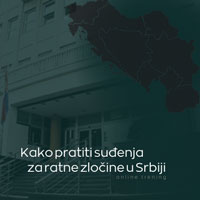
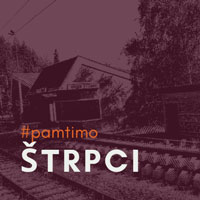
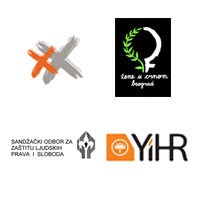 On Sunday, February 27, 2022, it will be 29 years since the crime in Štrpci (Bosnia and Herzegovina), in which members of the Army of the Republic of Srpska (VRS) kidnapped and killed 20 non-Serb civilians, passengers on a train travelling from Belgrade to Bar. The Humanitarian Law Center (HLC), Women in Black, Sandžak Committee for the Protection of Human Rights and Freedoms and Youth Initiative for Human Rights recall the public’s attention to the fact that victims’ families have been waiting for judicial justice in Serbia, and the recognition of their status as family members of civilian victims of war, for 29 years now. For 29 years the public has been waiting for the recognition, accountability and memorialisation of victims by the institutions of Serbia.
On Sunday, February 27, 2022, it will be 29 years since the crime in Štrpci (Bosnia and Herzegovina), in which members of the Army of the Republic of Srpska (VRS) kidnapped and killed 20 non-Serb civilians, passengers on a train travelling from Belgrade to Bar. The Humanitarian Law Center (HLC), Women in Black, Sandžak Committee for the Protection of Human Rights and Freedoms and Youth Initiative for Human Rights recall the public’s attention to the fact that victims’ families have been waiting for judicial justice in Serbia, and the recognition of their status as family members of civilian victims of war, for 29 years now. For 29 years the public has been waiting for the recognition, accountability and memorialisation of victims by the institutions of Serbia.